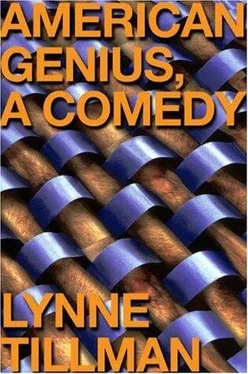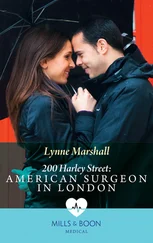My father had no stomach for the sight of blood, either, but I didn't know this, along with many other things about him when, as a small child, I saw his penis as he urinated or when he took me to Thanksgiving parades. I remember the parades better than his penis, but I remember both vaguely, and I couldn't describe his penis at all, maybe because he held it in his hands when he urinated, and I can't detail the parades, which we attended for some years, though I can't say how many, since I retain only sensations about both, along with an image or two. He is standing at the toilet, I am standing to his side, his left side, and the parades are crowded, noisy, colorful, there's movement everywhere, it's cold and I'm bustling with life, my father smiles, excited, his face is flushed with pleasure and red from the cold day. He had a full face like mine now, and, like a child, he loved parades and carnivals.
When my mother, in anger, pushed her arm through a glass storm door, which led to our patio with its smoky gray and blue slate tiles, cutting her arm badly, there was blood everywhere. My father, who was a good driver and proud of it, though he wasn't proud of much, certainly not his two children, was unable to drive her to the hospital, since he was faint. I didn't see my mother push her arm through the glass door, fighting and furious with my father, who became dizzy, but even so he accompanied her to the hospital. Her arm swathed in towels, or in a tourniquet of some sort, but bleeding profusely, she drove herself and him, he almost fainted beside her, to the emergency room. When a Christian Scientist bleeds, bandages must be allowed, and if the girl in the infirmary had cut her arm badly, white gauze strips would have been bound around her little arm, to stanch the flow, but since those who believe in divine intervention and miracles like the Red Sea's parting do not allow medicine, they could reject bandages. They might rely on prayer to make the blood clot quickly, though why anyone would is another mystery, and the little girl could have bled to death, which might have been a better fate than having been forced to linger in an infirmary sickbed all summer, unable to play under the sun, but eventually to die, in any case.
Sometime ago I found it especially hard to leave the breakfast room, since I was caught in an unfolding drama or a scene which suggested its possibility, when the demanding man's recitation of his dream provoked interpretations, which he sought as if he were starving, though he'd eaten plenty, and also the young married man seemed especially upset reading the paper, all of which didn't augur well for my peace of mind. He slapped the newspaper's pages open and then, turning to another page, shook his head and looked around, priming himself for the telephone, positioning his body so that his ear was directed toward the old, wooden booths, and he kept glancing toward the hallway that led to them, since his wife or mother might call soon, since they must miss him, the way he was missing them. He told me at dinner one night, where he liked company and ate with his usual gusto, no matter what he was served, but without the newspaper in front of him, that human beings create all of their own problems and that the universe itself was perfect and beautiful; and just as breakfast reached its end, everyone finished, those of us who hadn't yet fled watched the newcomers arrive, two men, who were accompanied by one of the staff, the most effervescent of a generally sedate crew. The new, white man, Henry, was a melange of pigment, with light acne around his nose, stubble on his chin and above his lips, and a rash, which turned out to be sycosis, a chronic inflammation of the hair follicles, especially of the beard and scalp, and he was thin and short, while the other new resident, Arthur, was black, several shades darker, but his skin, in places, was mottled, especially on his cheeks, and he was taller but rounder, with a slash of red like a ribbon at his throat from, I believed, a recent shave, and just as when I arrived, many heads involuntarily looked up and then, voluntarily, down, mine did, too, much as I didn't want to but was helpless against the effect of new stimuli, as if I had a nervous system like a leaf and was exhibiting a tropism. I heard them say each other's names familiarly; maybe, I thought, they'd arrived as a couple, sometimes that was permitted, with some goal established between them. The whiter one, Henry, has thinning blond-gray hair, the darker one, Arthur, a full head of longish, loose and braided black hair, and both trod on the floor in a lively, determined manner. Later, they explained they were partners in every aspect of their lives, they had no secrets from each other, which discomforted me in my skin, but they must keep secrets from others, and they finished each others' sentences, so at first and in some ways it was hard to separate them, even though they were physically quite different. They had met in dental school, where they trained to he orthodontists, after Arthur had quit studying physics in order to be in a less abstract world. Their project, if they had one, was maintained in secrecy, Arthur had frail lungs, Henry acid reflux disease and an ulcer, and they never wanted to talk about their work, since they came for a break. Both had a penchant for poetry, Arthur especially, he might have been writing some, but I forced them to talk about teeth once, by telling them that orthodontists were teeth designers and sculptors of the mouth, but I didn't admit that if I were a dentist, oral surgeon, or orthodontist, which I couldn't be, because of the spilling of blood, I'd be tempted to take out teeth and not put them back in, to set teeth crooked, but in a beautiful way, and then remove my handiwork and start all over again.
The demanding man groaned and slapped at a buzzing fly that had settled on the table, but didn't hit it, and everyone else was silent as the two new men, partners, walked into the kitchen, to tell the cook what they would and wouldn't eat. I wondered in a mild way whether these people would be boons or obstacles in my life, but then the tall balding man slapped the table hard and killed a large, bluebonnet fly, and Contesa muttered, "Beautiful specimen." To what she referred I wasn't positive, since either the fly or the new men might have been in her sightline. When the men disappeared into the cook's theater, I knew they would instantly establish a good or bad rapport, which would likely worsen or ameliorate during their time here, with the cook and the kitchen staff, since certain attitudes shift before they settle and harden. "Beautiful specimen," Contesa repeated, as we all rose from the table. The phone rang, clamoring, finally, for the young married man who raced to it, while Contesa scooped the dead blue and black fly off the table. The newcomers might have precipitated the drama, for the tall balding man sputtered and then uncharacteristically pushed or shoved the demanding man, who was lingering around balefully, and one of the staff saw the incident, scurried over to them, and guided them, presumably, to the director's office. None of us said a word, Contesa's gray eyes found mine, but the disconsolate anorectic clutched her friend's arm and shuddered. Another fly buzzed around me, and I slapped it harder than I meant, killing it. The disconsolate women frowned at me, and I left the dining room soon after, without being introduced to the two men, whose partnership I envied and disliked.
During the summer, at camp or at home, mosquitoes buzzed close around me, and I had extreme, allergic reactions to their bites, fat, pink welts budding on my legs and arms, and later I required antihistamines whenever bitten, but back then calamine lotion regularly dotted my body, its hot pink a humorous retort to my tanned legs, chest, back, and arms. I tanned under the sun for hours when I was young, listening to the ocean or rock and roll on a portable radio set close to my ear, but mostly I listened to the waves as they tossed themselves thoughtlessly against the sand, landing and lapping patiently and repetitively, then retreating, and I had a feeling of contented exhaustion, so complete and good that I knew it wouldn't last, that the best things don't last, and that I should try to preserve a moment which would, like a wave, retreat, but unlike a wave, maybe never come back. I associate this happy exhaustion only with going to the beach, lying on the sand after swimming in the ocean, whose waves sometimes dragged me under, compelling me to acknowledge forces much bigger than myself, whose will I couldn't shake or dent, of walking under a hot sun on the wet sand, leaving footprints whose impressions faded quickly, and letting the ocean nip at my toes and ankles, when standing at the edge of the ocean and the world I knew. The waves crept higher and higher, almost to my tanned knees, depositing a salty residue on my skin, and I thought I never wanted to be anywhere else but at the foot of the ocean and wished I could advance and recede like a wave.
Читать дальше












